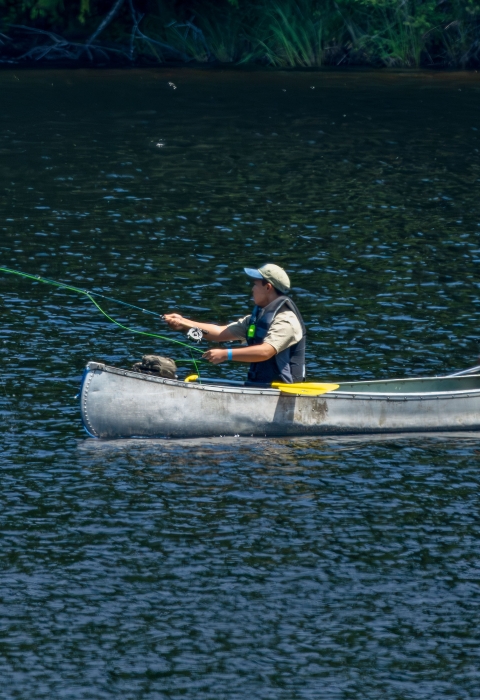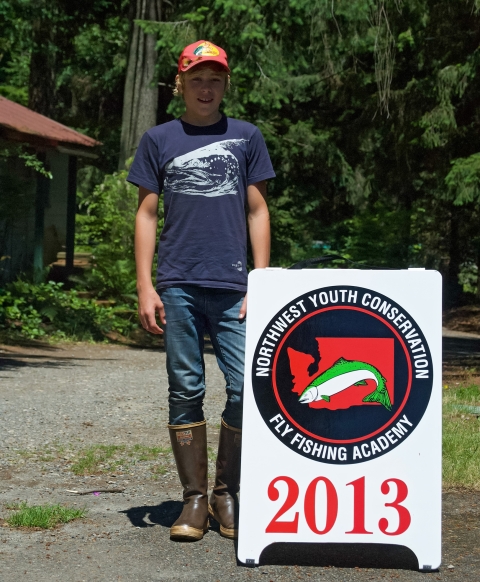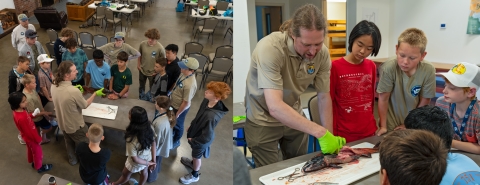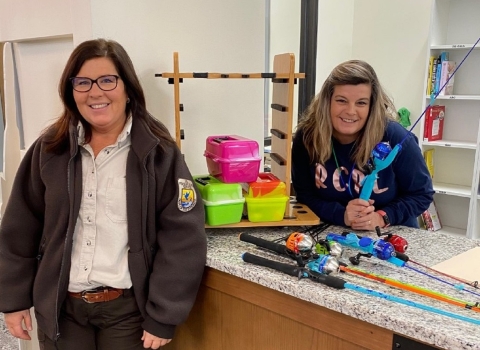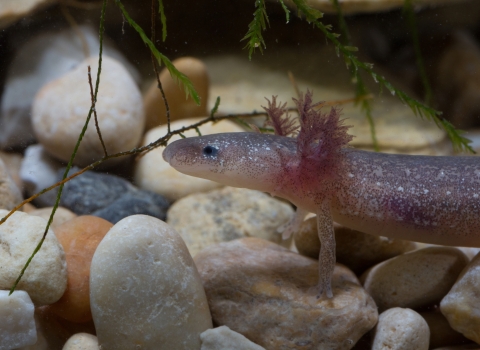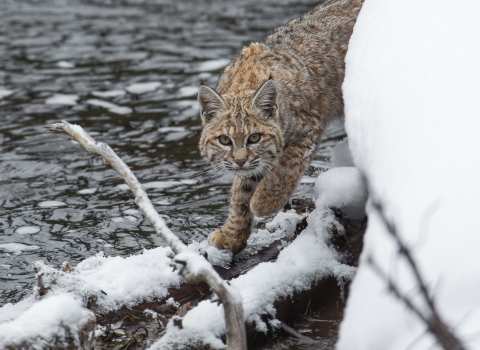For over 20 years, the Northwest Youth Conservation and Fly-Fishing Academy (academy) has been teaching not only the ins and outs of fly fishing to teenage youth, but also the importance of conservation science and stewardship. While not every graduate from the program will pursue a career in the sciences, all take with them an appreciation of nature and insights into how aquatic ecosystem functions.
All of us can look back to a time in our lives when an opportunity shaped our future. For Jakob Bengelink, biological science technician for the U.S. Fish and Wildlife Service (Service), his experience and the connection he made as a camper and long-time counselor at the academy opened the door to a career in fisheries.
The academy’s overarching purpose might be all things fly fishing, but it also has a much wider purpose, evidenced by its mission statement: “Our mission is to inform, equip, and inspire a new generation of conservation-minded fly fishers.” It's those efforts that continue to make a difference in the lives of campers and even help open the door for careers.
"The academy instantly impacted me as a camper, giving me better fly-fishing skills, and I enjoyed all the individuals at camp, from the directors to the counselors to the fellow campers,” said Bengelink. “As a counselor, I kept coming back to give back and try to effect positive change in the young campers as I had a better grasp of fly fishing and conservation principles as I grew older."
The academy teaches the intricacies of fly fishing with topics such as fly tying and casting, combining them with lessons on fish biology, entomology, fisheries conservation, invasive species invasive species
An invasive species is any plant or animal that has spread or been introduced into a new area where they are, or could, cause harm to the environment, economy, or human, animal, or plant health. Their unwelcome presence can destroy ecosystems and cost millions of dollars.
Learn more about invasive species , and more. Campers are introduced to real-world topics in science by professionals such as Dan Spencer, information and education specialist and angling programming director for the Service’s Western Washington Fish and Wildlife Conservation Office.
“Supporting partner programming such as this academy is a labor of love. It combines my passions for fishing and conservation and allows me to pay it forward for all the inspiration, support, and mentoring I received in my youth,” said Spencer.
Thanks to the connection made with Spencer, Bengelink’s path gained some clarity at the academy. Spencer encouraged him to apply to become an American Conservation Experience (ACE) internship at Quinault National Fish Hatchery. This opportunity led Bengelink to gain valuable fish hatchery and aquatic field experience that opened the door to his current role for the Service as biological science technician.
Now a fisheries professional, Bengelink’s path has come full circle with a trip back to the academy. This time, he is representing the Service to teach the next generation of campers some of the everyday techniques used to better understand fish populations.
"It was great to explain cutting-edge aquatic tracking methods we use every day to youth who are just starting to build their interest in fish. The direct applications I presented connect fish with science and conservation," said Bengelink.
John Gravendyk, the director of the academy, had the opportunity to meet Jakob and learn about his journey from the academy to the Service.
“It was a pleasure talking with Jakob about his matriculation from academy camper to counselor to a career with the U.S. Fish and Wildlife Service. Providing an overview of the Service is a valuable part of our program and another differentiator between our program and others,” said Gravendyk.
Among the many projects that Bengelink is a part of with the Service, one of the most important is the work currently being done on the Elwha River to answer the questions of how dam removals affect salmon and steelhead. His efforts in helping to both tag and track fish while also serving as a teacher of fisheries techniques to interns have had a great effect on the project and all those involved.
“When we take time to teach youth and our interns, I know we are having an impact, but it’s especially rewarding when we both influence and follow the development of the next generation of conservation advocates and professionals such as Jakob. It’s the icing on the cake that Jakob is now working for our office and making meaningful contributions to our conversation mission,” said Spencer.
